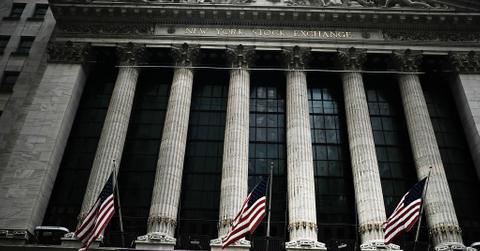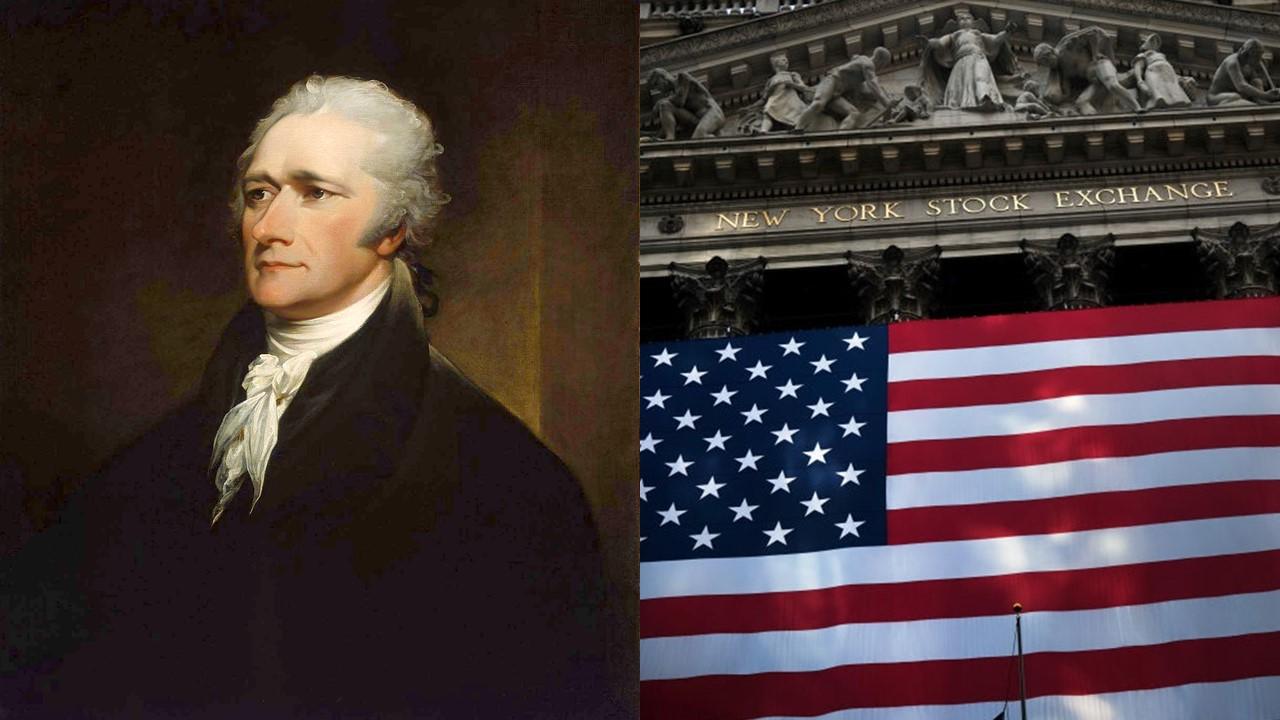Alexander Hamilton’s Economic Contributions to the U.S.
Alexander Hamilton was powerful leader in early U.S. government. He helped shape the current economic system in the U.S., including the stock market.
Jan. 6 2021, Published 2:01 p.m. ET

The New York Stock Exchange
The name Alexander Hamilton has been revived in pop culture through the musical by Lin-Manuel Miranda, which premiered on Broadway in 2015. Hamilton's leadership and government involvement throughout many of the turbulent years early in U.S. history still impact the nation’s economy over 200 years after his death.
Hamilton was born on Jan. 11 in either 1755 or 1757 in the West Indies. He served during the American Revolution and was instrumental in Congress. He also served as the first U.S. Treasury Secretary. Some of his key economic concerns were the national debt, creating a national bank, and subsidizing innovative domestic industries, according to Digital History.

How Alexander Hamilton set the course for the U.S. economy
Over 200 years ago, Hamilton imagined the U.S. as a country that thrived on creating and supporting industries. His views were in contrast to Thomas Jefferson, who envisioned remaining a nation primarily of farmers who enjoyed the freedom of owning and managing their own land.
Why Alexander Hamilton proposed a national bank
Hamilton’s national bank proposal was modeled from the Bank of England and would collect taxes, store funds, and issue loans. He hoped that the national bank would “make the new nation’s economy dynamic through a more stable paper currency,” according to USHistory.org.
Although Jefferson, James Madison, and others opposed the national bank as being unconstitutional, Hamilton argued that a national bank fell within the bounds of what was “necessary and proper” for the national government to establish. Washington agreed and signed the temporary measure.
Alexander Hamilton's idea of an ideal economy
Hamilton strongly supported government assistance in promoting manufacturing and industry in order to release the U.S. from British control in that area. He was also in favor of banks and strong public credit, which were also highly opposed in his day. Hamilton’s commitment to a powerful central government wasn't popular at the time.

Alexander Hamilton set the stage for the current stock market
According to Investopedia, Hamilton was “Wall Street’s most influential early leader.” He founded the Bank of New York in 1784, which historian Ron Chernow calls “a formative moment in the city’s rise as a world financial center,” according to NYHistory.org.
As Treasury Secretary, Hamilton submitted his Report on Manufactures to Congress in 1791. The report “explored ways for the federal government to promote commercial development that would lead to a more productive, modern economy.” He encouraged the use of protective laws to help build up new industries.
Hamilton witnessed the establishment of the New York Stock Exchange. The historic first stock ever traded on the NYSE was Hamilton’s Bank of New York, which still trades under the ticker symbol "BK."
Alexander Hamilton contributed to the Federalist Party
Although leaders like Hamilton and Washington didn't like the idea of political parties, the Federalists emerged as one of the two primary political parties in the U.S. in the 1790s. Hamilton wrote 51 of the 85 Federalist Papers, which argued for a strong central government. He largely led the Federalist Party.
Jefferson and Madison led the opposing Republican party, which later became the Democratic-Republican Party.
